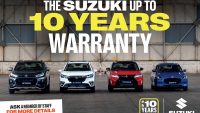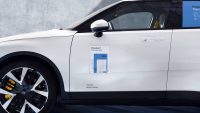Stellantis has warned it won’t be able to keep its commitment to building electric vehicles in the UK without changes to the Brexit deal.
It has told a Commons inquiry into supply of batteries for EV manufacture that its UK investments were in the balance due to the terms of the trade deal.
Stellantis is the world’s fourth-largest carmaker and owns brands including Peugeot, Citroen, Fiat and Vauxhall.
In a submission to the inquiry, the company said the Brexit deal was a ‘threat to our export business and the sustainability of our UK manufacturing operations’.
It called on the government to reach an agreement with the EU to maintain existing rules until 2027, rather than next year’s planned changes which state 45 per cent of an electric car’s value should originate in the UK or EU to qualify for trade without tariffs.
Stellantis said the rise in the cost of raw materials during the pandemic and energy crisis meant it was ‘unable to meet these rules of origin’.
It said the upcoming rules would see 10 per cent tariffs on trade with the EU and make domestic production and exports uncompetitive with Japan and South Korea.
The carmaker said that would mean manufacturers ‘will not continue to invest’ and will relocate.

Vauxhall celebrated 60 years of manufacturing at Ellesmere Port last year
‘To reinforce the sustainability of our manufacturing plants in the UK, the UK must consider its trading arrangements with Europe,’ Stellantis told the inquiry, listing Honda’s closing of its site in Swindon and investment in the US as examples of its impact.
Stellantis said there will be ‘insufficient battery production’ in the UK or Europe to meet government targets in phasing out petrol and diesel vehicles by 2025 and 2030.
‘It we are unable to rely on sufficient UK or European batteries, we will be at a major competitive disadvantage – in particular against Asian imports,’ it said.
‘We need to reinforce the competitiveness of the UK by establishing battery production in the UK.’
Stellantis employs more than 5,000 people in the UK and operates two factories – Ellesmere Port and a van facility in Luton.
Vauxhall had been building its Astra model at Ellesmere Port since 1979, but production stopped in April 2022 in readiness to switch to producing EVs – the first Stellantis site to solely make battery electric vehicles.
The news comes as France continues to charm leaders of big industries.
The latest is Elon Musk who was a star attendee at President Macron’s annual summit of global executives in Paris. The Tesla, SpaceX and Twitter boss promised to make a significant investment in the country, according to The Times.
Musk has already built its first European gigafactory for EV batteries in Germany, as Tesla aims to increase vehicle sales from 1.31m last year to 20m in 2030.
SMMT chief Mike Hawes said the ‘rules of origin’ poses a challenge across Europe, not just in the UK.
‘The UK-EU TCA provided the basis for tariff-free trade and unlocked some pent-up investment. However, the rules of origin for batteries pose a significant challenge to manufacturers on both sides of the Channel, with the prospect of tariffs and price increases which discourage consumers from buying the very vehicles needed to achieve climate change goals,’ he said.
Hawes added: ‘At a time when every country is accelerating their transition to zero emission transport, and global competitors are offering billions to attract investment in their industries, a pragmatic solution must be found quickly.
‘We urgently need an industrial strategy that creates attractive investment conditions and positions the UK as one of the best places in the world for advanced automotive manufacturing.’
Founder and CEO of Electrifying.com Ginny Buckley said: ‘The threat from Stellantis is clear; if the Brexit deal isn’t renegotiated – and soon – they will be forced to relocate outside of the UK, and I suspect others may follow.
‘This is bad news for our car industry that’s already faltering; with Nissan now the only mainstream company committed to manufacturing electric cars here in the UK, the threat to jobs across the sector is serious. Not only this, as a way of clawing back revenues, any extra production costs will be passed on to the consumer.
‘This is not a price many motorists can pay in the current climate as affordability is still a huge issue for car buyers with just five electric cars currently on sale in the UK under £30,000.’



































